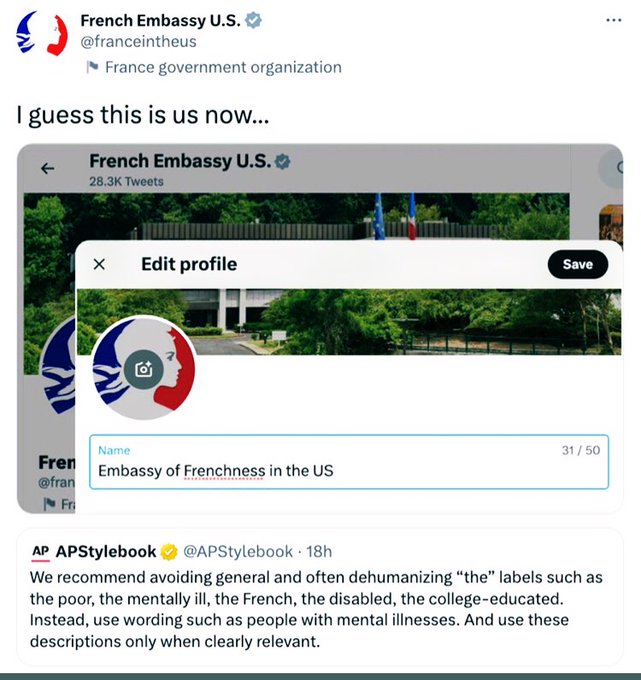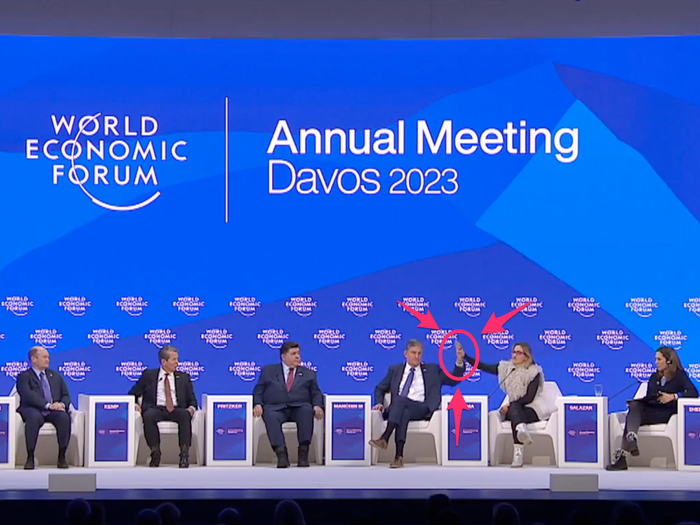Here are some of the topics that have caught my attention as I’ve been browsing the internet:

Did an FBI Spy Scandal Impact the 2016 Election?
Historian and authoritarianism expert Timothy Snyder rightly argues that we need to pay more attention to what happened with the FBI in 2016 because “[w]e are on the edge of a spy scandal with major implications for how we understand the Trump administration, our national security, and ourselves.”
I am surprised by how little the arrest last week of former FBI agent Charles McGonigal has entered into the public discourse. But I agree with Synder that the potential implications are immense. He writes:
“On 23 January, we learned that a former FBI special agent, Charles McGonigal, was arrested on charges involving taking money to serve foreign interests. One accusation is that in 2017 he took $225,000 from a foreign actor while in charge of counterintelligence at the FBI’s New York office. Another charge is that McGonigal took money from Oleg Deripaska, a sanctioned Russian oligarch, after McGonigal’s 2018 retirement from the FBI. Deripaska, a hugely wealthy metals tycoon close to the Kremlin, “Putin’s favorite industrialist,” was a figure in a Russian influence operation that McGonigal had investigated in 2016. Deripaska has been under American sanctions since 2018. Deripaska is also the former employer, and the creditor, of Trump’s 2016 campaign manager, Paul Manafort.
The reporting on this so far seems to miss the larger implications. One of them is that Trump’s historical position looks far cloudier. In 2016, Trump’s campaign manager (Manafort) was a former employee of a Russian oligarch (Deripaska), and owed money to that same Russian oligarch. And the FBI special agent (McGonigal) who was charged with investigating the Trump campaign’s Russian connections then went to work (according to the indictment) for that very same Russian oligarch (Deripaska). This is obviously very bad for Trump personally. But it is also very bad for FBI New York, for the FBI generally, and for the United States of America.”
Former FBI Director James Comey broke Justice Department policy and notified the public about the laptop emails because he believed that some FBI New York field office agents were so hostile to Hillary Clinton that they would leak the information. And the New York Times had reporters all too willing to amplify those leaks.
The Philadelphia Inquirer’s Will Bunch goes into this part of the scandal:
“It was arguably the most consequential “October Surprise” in the history of American presidential elections. In the waning days of the 2016 race, with polls showing Hillary Clinton clinging to a lead over Donald Trump, two last-minute stories broke that rekindled on-the-fence voters’ ethical doubts about Democrat Clinton and quashed a budding scandal around her GOP rival.
Except the “October Surprise” was no surprise to one key player: Rudolph Giuliani, the ex-New York mayor and Trump insider who later became the 45th president’s attorney. Late that month, Giuliani told Fox News that the trailing Republican nominee had “a surprise or two that you’re going to hear about in the next few days. I mean, I’m talking about some pretty big surprises.”
Just two days later, then-FBI director James Comey revealed the bureau had reopened its probe into Clinton’s emails, based on the possible discovery of new communications on a laptop belonging to disgraced New York politico Anthony Weiner. The news jolted the campaign with a particularly strong boost from the New York Times, which devoted two-thirds of its front page to the story — and the notion it was a major blow to Clinton’s prospects.
It was later reported that Comey was motivated to make the unusual announcement about the laptop because he feared leaks from the FBI’s New York field office, which, according to Reuters, had “a faction of investigators based in the office known to be hostile to Hillary Clinton.” Indeed, Giuliani bragged immediately after that he had sources in the FBI, including current agents.”
We should demand to learn more about why Giuliani was so confident about information he shouldn’t have had.
The FBI and the New York Times have always had a bunch of explaining to do about how they handled this email disclosure. The new indictments of former agent McGonigal about his alleged connections to Russian oligarch Oleg Deripaska make getting answers to them more urgent.
A Long Drive to Left by Craig Cheslog is a reader-supported publication. To receive new posts and support my work, consider becoming a free or paid subscriber.
Enshittification Explains the Internet
Parker Malloy shared this fantastic post from Cory Doctorow that explains so much about why the internet is so awful. As Malloy points out, “It’s a great piece of writing that helps explain the bait-and-switch platforms play on users and business partners alike.”
Doctorow explains the life cycle of social media companies and why they all end up in the same horrible place. He writes, “Here is how platforms die: first, they are good to their users; then they abuse their users to make things better for their business customers; finally, they abuse those business customers to claw back all the value for themselves. Then, they die.”
Doctorow demonstrates how we have seen this happen with Amazon, Facebook, Twitter, and Google. Each of these companies followed the same enshittification lifecycle, and now TikTok is headed in the same direction.
“This is enshittification: surpluses are first directed to users; then, once they’re locked in, surpluses go to suppliers; then once they’re locked in, the surplus is handed to shareholders and the platform becomes a useless pile of shit. From mobile app stores to Steam, from Facebook to Twitter, this is the enshittification lifecycle.”
Thank you for reading A Long Drive to Left by Craig Cheslog. This post is public so feel free to share it.
The AR-15 for Kids
Intelligencer’s Matt Stieb writes about the new child version of the AR-15. “At a gun expo in Las Vegas last January, Eric Schmid, the founder of WEE1 Tactical, demonstrated his company’s first offering: the JR-15, a play on the popular AR-15 assault rifle designed to look just like its deadly cousin, but 20 percent smaller. “It fits the kids really well,” he told a visitor to his booth. “That’ll give them the confidence to hold this thing the way they should have confidence holding it — no drop down in the front trying to manage a weight that’s not right for them. It just fits ’em, fits ’em really well.”
That’s vital for a well-regulated militia.
Banning Your Enemies with Facial Recognition
Madison Square Guardian Chief Executive Officer James Dolan has long earned a reputation as one of the worst owners in professional sports.
But it isn’t enough just being the failson owner that continues to put awful teams on the court (New York Knicks) or ice (New York Rangers). Oh no, there’s more. Dolan is now topping those failures by using facial recognition technology at Madison Square Garden to ban attorneys working for firms suing him from attending events.
Gothamist’s Jake Offenhartz provides the details: “Dolan has come under fire for his use of the surveillance technology to remove attorneys working for law firms with active litigation against MSG Entertainment, a holding company he runs that also oversees Radio City Music Hall and the Beacon Theatre.
In one highly publicized case, a mother chaperoning her daughter’s Girl Scout troop was removed from a Christmas Spectacular performance after cameras matched her face with a database of photos of lawyers working for banned firms.
But as he faces public indignation, lawsuits, state legislation and an inquiry from New York Attorney General Letitia James, Dolan is digging in and doubling down on his grudges, as he has often done in the past.”
The abuse of facial recognition technology is something about which we all should be concerned. As the Electronic Frontier Foundation’s Adam Schwartz notes, “Face recognition technology is a special menace to privacy, racial justice, free expression, and information security.”
That is one of the reasons why authorities must stop Dolan now. And we must put proper regulations in place as soon as possible to protect our rights in public spaces.
Abortion, Every Day
Jessica Valenti at Abortion, Every Day recaps the news from across the country regarding reproductive freedom and sexual and reproductive health care.
In this edition, Valenti explains how Kansas politicians continue to ignore the will of the state’s voters to propose other ways to enact a total abortion ban. “When questioned about the overwhelming voter response to the 2022 ballot measure, one of the bill’s sponsors, Rep. Randy Garber, said that he simply didn’t believe the vote was representative of public opinion.”
This dynamic is also happening in other states. “Republicans in Missouri are also eager to circumvent voters’ wishes—a House panel in the state pushed forward bills yesterday to make it harder to pass ballot measures and change the state constitution. And in Nebraska, Democrats are accusing their conservative counterparts of bending legislative rules in order to fast-track abortion restrictions.”
The Disappearance of Ashtrays
I am old enough to remember how ubiquitous ashtrays were in public spaces and homes. Given the horrible health impact of smoking, it is a significant improvement that ashtrays are not needed as much today. I hadn’t thought about how much has changed—and how beautiful some of them were—until I came across this article by Clive Thompson.
He writes, “To our contemporary eye, perhaps the most surreal thing was that kids in elementary school would, as part of arts and crafts, routinely make an ashtray for our parents. If your class was doing a segment on clay or ceramics, everyone would have to figure out, huh, what should I make? A pencil-holder? A paperweight? (Perhaps an even more mystifying artifact, to the youth of today.) Nope. Instead, easily two-thirds of the class would decide that hey: Mom needs another ashtray.”
Yep. I made a couple of these in school.
Marie Kondo Embraces The Joy of Some Chaos
If you are feeling anxious about the clutter in your house or workspace, understand that you are not alone. The Washington Post’s Jura Koncius profiles Marie Kondo and explains how her priorities have changed since the birth of her third child.
“In the chill of January, we often examine how we are living. And right now, many of us are revisiting the tidying principles of Japanese lifestyle queen Marie Kondo.
But the ever-organized Kondo, it seems, is a bit frazzled since giving birth to her third child in 2021. Like most of us, she’s having trouble keeping up with all of it. Never fear, though: She is still sparking joy. It’s just that, these days, that doesn’t hinge on having a tidy house. Her new rituals turn inward, to more thoughtful things than a drawer full of perfectly folded T-shirts or an Instagram-worthy spice cabinet.”
Kids make organizing a house more difficult? Who could have guessed?
Quick Pitches
The Wall Street Journal’s Andrew Beaton and Joshua Robinson explain the power of the chess world’s newest antagonist: “Mittens—or technically the chess bot known as Mittens—might look cute. Her listed chess rating of a single point seems innocuous. But her play over the past few weeks, which has bedeviled regular pawn-pushers, grandmasters, and champions who could play for the world title, is downright terrifying. And as it turns out, people are gluttons for punishment.”
My Pocket account shared this great explainer by Tim McMillan about the Pentagon’s process for creating code words and secret project nicknames.
Chicago magazine’s Elly Fishman profiles John Becker, who musicians like Joshua Bell trust to repair some of the world’s most expensive violins. “For Becker, the work is an act of historic and cultural preservation. He often points to something Fulton once told him: “We are caretakers of these instruments. We move on, but these instruments continue to the next generation.”
Science Alert’s Michelle Starr writes that the James Webb Space Telescope has found the elements of biochemistry in the coldest and darkest place yet. “In a molecular cloud called Chamaeleon I, located over 500 light-years from Earth, data from the telescope has revealed the presence of frozen carbon, hydrogen, oxygen, nitrogen, and sulfur – elements vital to the formation of atmospheres and molecules such as amino acids, collectively known as CHONS.”
Political campaigns sent more than 15 billion texts in 2022 (and Republicans sent 12 billion of them). There were more political texts than calls made during last year’s elections. And, as NBC News’ Alex Ford explains, “Most voters don’t have to do anything to wind up on political text lists. Contact information for millions of voters has already been collected into vast databases known as data exchanges, which are managed by brokers that sell access to campaigns. The data itself, according to the brokers, is collected from public records and other sources.”
I hope the California Legislature makes this happen.
Proud to announce that @SenBlakespear and I are introducing new legislation, #SB8, that would require CA gun owners to obtain insurance for the negligent or accidental use of firearms. If enacted, the bill would make CA the first state to adopt such law.
— Nancy Skinner (@NancySkinnerCA) 5:42 PM ∙ Jan 26, 2023
Thank you for reading my newsletter. Let me know what you think about what you’ve read. You can email me at craigcheslog@substack.com.
Please help me spread the word about this newsletter by sharing this post via email or on the social media network of your choice. And if you haven’t already, please consider signing up for a free or paid subscription.








